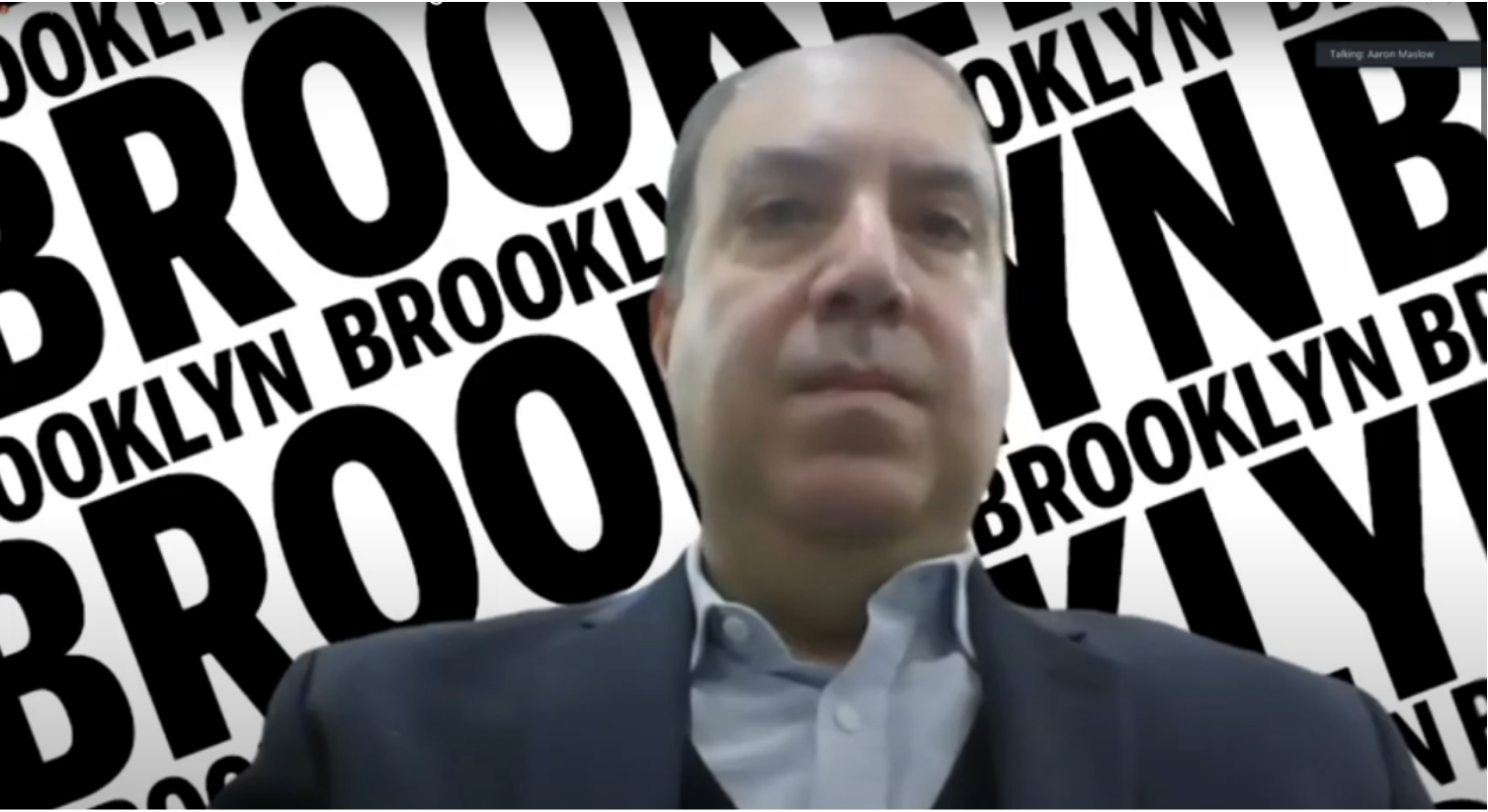After Grueling Late Night Meeting, Brooklyn Democrats Approve Party Reforms


After a punishing virtual meeting that lasted nearly 13 hours and was filled with delays, technical problems, miscounted votes, and accusations of impropriety, the Brooklyn Democratic Party voted early Thursday morning to enact new rules that reformers said would make the party more transparent and accountable.
The rules, long sought by New Kings Democrats (NKD) and other progressive political clubs, create new oversight requirements for the party’s troubled finances, add a second yearly meeting of the party’s rank-and-file County Committee, establish clearer meeting procedures and reform a byzantine proxy voting system that enabled party bosses to wield immense power over the decision-making processes.
The amended rules and the meeting that preceded their approval were the culmination of a long-simmering battle between establishment party leaders and reform-minded progressives that has exploded into view in recent months.
After nearly 13 hours — and multiple attempts by the Party to prevent a fair vote — County Committee Members were able to vote on the rules reforms for a more transparent and accountable Party.
And we won.
Read the rules that just passed here:https://t.co/BTFIjsS4is
— New Kings Democrats (@newkingsdems) December 17, 2020
“After 12.5 hours, I can say that we ended the night with a huge victory!” Emile Bazile, an NKD-backed District Leader, wrote on Twitter after the vote took place.
The meeting itself, which party leadership had earlier tried to cancel only to be overruled by a state judge, was a logistical disaster. After beginning 30 minutes later than the meeting’s scheduled noon start time, a dispute quickly emerged over the counting of proxy votes designated to each of the party’s 42 elected District Leaders.
Because several hundred members of the party’s 5,500-seat County Committee had proxied their vote to a District Leader rather than attend the meeting themselves, an accurate proxy count was crucial to determining the balance of power at the meeting. As a result, the meeting was delayed nearly three hours while party officials reviewed and corrected the numbers.
“I find that the way this meeting is being run is just atrocious,” said District Leader Josh Skaller at one point.
Even after the proxy counts were corrected, the numbers game continued. A proposal to renew existing party rules, supported by party leadership, narrowly passed with a vote count higher than the total number of members in the party.
The initial tally of a Brooklyn Democratic Party vote to continue existing rules which, at 2,205, was 26 votes higher than the Party’s actual membership of 2,179.
From there, the meeting slowly spiraled into chaos. After several members called out the numerical discrepancy, party County Committee chair Carlo Scissura said the vote would be rescinded and suggested the body reconvene at a later date with a more accurate voting mechanism.
But when District Leader Joseph Bova made a motion to end the meeting, reform leaders pushed back.
“How are we going to trust that that vote [to adjourn] is accurately counted,” Mariana Alexander, NKD’s president, asked Scissura, “given the issues that you just admitted to?”
After an individual roll call vote to end the meeting failed, several County Committee members demanded that Scissura share the raw vote data from Data on the Spot, the party’s voting tech contractor. Scissura resisted for several hours before eventually relenting and again pausing the meeting to allow members to review the data.
When the group reconvened (a portion of the meeting apparently not saved on the party’s public Youtube page), Alexander proposed a new motion to adopt the reformers’ proposed rules, and to reconvene on December 23rd to finish the party’s other outstanding business, including the election of officers and the filling of the nearly 2,000 County Committee seats vacated when a judge ruled last week that the party leadership had filled them illegally.
Alexander’s motion passed an individual roll call vote, 110 out of 146. It was well after midnight.
In a statement posted on Twitter, the party wrote that it was “working on fixing the discrepancies with the outcome. We will be completely transparent throughout the process as we account for inconsistencies. We know we MUST get this right.”
That statement was met with skepticism and derision by several reform-minded District Leaders and other political leaders.
Before #CCMeeting2020 we had little to no confidence in BK Dems party leadership. After yesterday’s meeting we have completely lost any confidence or trust. Party had to be sued, votes were corrupted & process been secretive & obstructive. A different leadership is imperative.
— Samy Nemir-Olivares (@Samynemir) December 17, 2020
Do they really think anyone believes this nonsense? #CCMeeting2020
— Douglas M. Schneider (@DougSchneiderBK) December 17, 2020
Several other elected officials and political clubs publicly criticized the party and its leadership, including the party’s chair, Assemblymember Rodneyse Bichotte, and celebrated the passing of the new rules.
Tonight it is crystal clear that Rodneyse Bichotte is totally unfit to be the Chairwoman of The @bkdems – we saw nothing but regression-I thought Jesse Shamilton was Brooklyn's Donald Trump but she has him beat #10Fold #StepDown #LetDemocracyPrevail #TotalSham #UndemocraticParty
— Diana Richardson (@YourFavoriteASW) December 17, 2020
The road to reform has been long, but I am so proud to have always stood with@newkingsdems!
From organizing at the beginning with@LincolnRestler to the leadership of @m_r_r_alexander last night, I knew our values of transparency, accountability & integrity would ultimately win
— Nydia M Velázquez (@ReElectNydia) December 17, 2020
Congratulations to @m_r_r_alexander and the @newkingsdems for pulling off a historic feat tonight at @bkdems county committee meeting. See below for a post to the important reform measures adopted tonight. https://t.co/fGk0Hcu9Pk
— Lambda Independent Democrats of Brooklyn (@LIDbrooklyn) December 17, 2020
While the new rules represent a significant structural reform to the party, it remains to be seen what their long-term impact will be, and whether they will quell the internal discord that has plagued the Brooklyn Democratic Party in recent months. But given the party’s outsized if sometimes unseen influence on several functions of local government, it’s likely they will remain the center of attention for some time.
“The impact that leadership has goes beyond just what happens at County Committee meetings,” said Caitlin Kawaguchi, NKD’s Communications Director. “District Leaders are people who select poll workers. Leadership selects Board of Elections employees. Judges go through District Leaders. Beyond the intra-party fight that’s been coming out a lot in recent days, who’s in these positions makes a big difference beyond just rule changes.”




